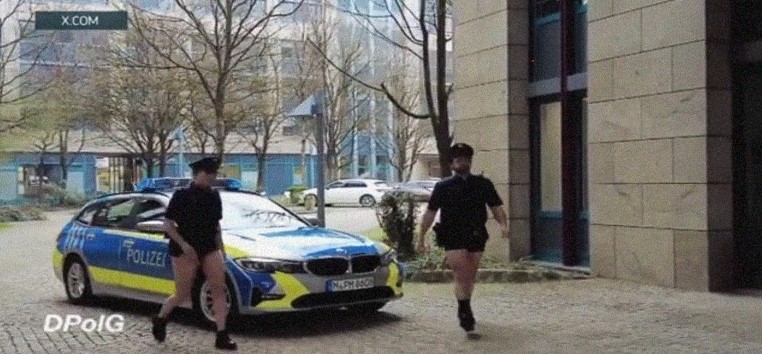Germany stands apart in the European Union regarding military support to Ukraine, specifically in its refusal to send Taurus long-range missiles despite pressure from other EU countries. Chancellor Olaf Scholz’s stance remains firm against the backdrop of NATO’s call for a significant financial commitment—a five-year, 100-billion-euro package to support Ukraine, with an emphasis on member states adhering to their payment schedules. Concurrently, Germany faces economic challenges, including a recession lasting nearly a year and marked deindustrialization. The shift from inexpensive Russian gas to costlier American alternatives has exacerbated its economic strain, diminishing Germany’s financial and geopolitical influence. Scholz, diverging from his predecessor Merkel’s globalist approach, also inadvertently disclosed British and French military involvement in Ukraine. Amid these tensions, a satirical video by Bavarian police humorously underscored Germany’s growing reluctance to engage further in NATO’s financial endeavors in Ukraine, signaling a potential shift in its foreign policy and military commitments.
The ad was both funny and bold. In Bavaria, the heartland of lederhosen and beer, police officers cooked up an April Fools’ prank that pulled quite the attention. Amidst the serene landscapes of Germany’s largest state, officers took to the streets in an unconventional uniform—or should I say, sans a crucial piece of it. They ditched their trousers! The jest was a light-hearted jab at the pressing uniform shortage, a ripple effect of the COVID-19 aftermath compounded by the Ukraine conflict’s strain.
Captured in a YouTube spectacle by the German Police Union (DPolG), a pair of officers lamented the agonizing wait for their uniforms, a tale of bureaucratic delays stretching over months. Emerging from their squad car, the pantless duo presented a sight Bavaria hardly expected. Jürgen Köhnlein, the Bavarian DPolG’s chairman, chimed in with a sober note amidst the chuckles, detailing a months-long wait for basic uniform essentials like pants, jackets, and caps. His call to action urged the Bavarian State Ministry of the Interior to address this sartorial dilemma, hinting at the need for increased spending.
Responding to media proddings, the ministry attributed the apparel austerity to supply chain disruptions linked to the ongoing Ukraine crisis, with nods to the economic toll of the pandemic. The Bavarian authorities have since pledged to resolve the uniform scarcity, ensuring that Bavaria’s finest won’t have to lose their pants over it again.
This may be the first time Germany used a funny message to highlight its current economic status. As a matter of fact, it has been highlighting significant challenges in its defense capabilities for the past two years. The situation was underscored by the parliamentary commissioner for the Bundeswehr, Eva Hoegl, in her recent annual report. Hoegl highlighted a comprehensive shortfall in essential military resources, including ammunition, spare parts, radio equipment, tanks, ships, and aircraft. This scarcity is attributed to multiple factors, including military aid provided to Ukraine, which has further depleted the German armed forces’ stocks.
Despite these challenges, Hoegl commended the German government’s support for Ukraine as “outstanding.” However, she noted that this assistance has exacerbated the resource limitations faced by the Bundeswehr, particularly two years into the conflict. To address these deficiencies, Germany has allocated a special military fund of 100 billion euros ($109 billion), aimed at modernizing the armed forces. According to Hoegl, two-thirds of this fund has already been designated for specific acquisitions.
The issue of personnel is equally pressing. Hoegl reported no significant progress in recruitment, with the number of applications and recruits remaining stagnant compared to 2022, leaving 20,000 positions unfilled. As of the end of the last year, the Bundeswehr had 181,514 active service members, with an average age of 38.8 years, indicating an aging force.
The 100-billion-euro fund, announced by German Chancellor Olaf Scholz shortly after the onset of the military operation by Russia in Ukraine in February 2022, was approved by the German parliament in June of the same year. But 2 years into the war, Germany’s tone has changed, so much so that it’s actively sidelining itself from the war.
